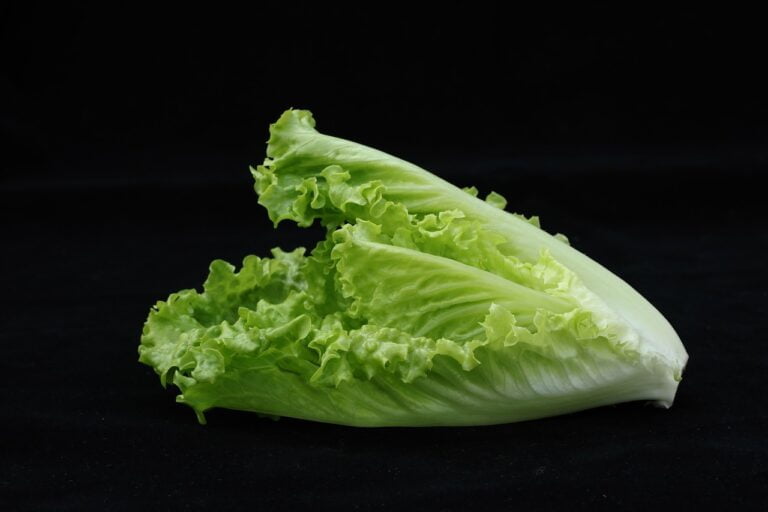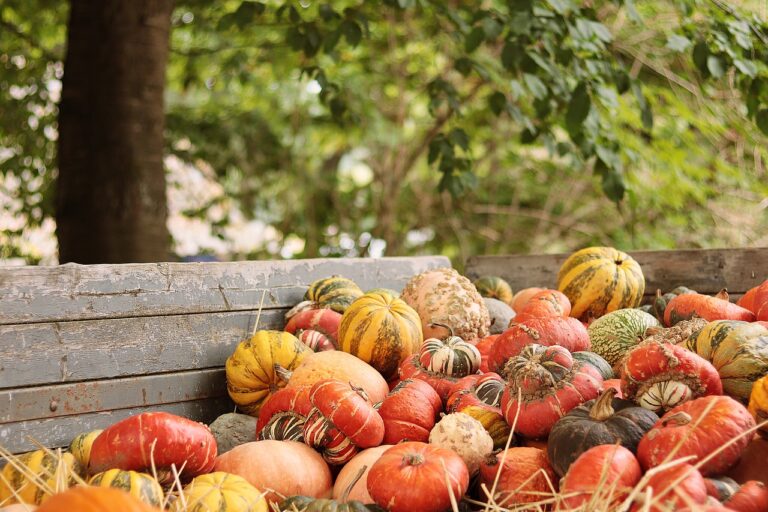Essential Techniques for Successful Organic Vegetable Gardening
Are you ready to take your vegetable garden to the next level? Discover essential techniques for successful organic vegetable gardening. From soil preparation to natural pest control, this article will provide you with practical and detailed information to help you grow a bountiful harvest. Learn how to compost, companion plant, and properly fertilize your plants. With these tips, you'll be able to manage weeds, harvest your vegetables, and store them for long-lasting freshness. Start serving your family and friends with delicious, homegrown organic produce today.
Soil Preparation
To prepare the soil for successful organic vegetable gardening, you should begin by removing any weeds and debris from the planting area. This is important because weeds can compete with your vegetable plants for nutrients and water, while debris can harbor pests and diseases. Once the area is cleared, consider using raised beds for your vegetable garden. Raised beds provide better drainage and soil aeration, which are essential for healthy plant growth. Additionally, they can help prevent soil erosion and make it easier to control weeds. After setting up the raised beds, it's time to apply mulching techniques. Mulch helps conserve moisture, suppresses weed growth, and regulates soil temperature. Organic materials like straw, leaves, or wood chips make excellent mulch options. Spread a thick layer, about 2-3 inches, around your vegetable plants, avoiding direct contact with the stems. By taking these steps, you'll create an ideal foundation for your organic vegetable garden.
Composting Techniques
Now, let's explore how you can incorporate composting techniques into your organic vegetable gardening routine to further enhance the health and productivity of your plants. Composting offers numerous benefits for your garden, including improved soil fertility, increased moisture retention, and reduced dependence on chemical fertilizers. To start composting, gather organic materials such as kitchen scraps, grass clippings, leaves, and plant trimmings. Avoid adding meat, dairy, or oily substances to your compost pile, as they can attract pests. Layer the materials, making sure to mix green and brown materials for optimal decomposition. Turn the pile regularly to aerate it and speed up the decomposition process. Soon, you'll have nutrient-rich compost to add to your garden beds, providing your plants with the essential nutrients they need to thrive.
Natural Pest Control
Keep pests at bay by implementing natural pest control methods in your organic vegetable garden. Biological control is an effective method that involves using beneficial insects, such as ladybugs and lacewings, to prey on pests like aphids and caterpillars. You can also attract birds to your garden by providing nesting boxes and bird feeders, as they will help control pests by devouring them. Another option is to make homemade remedies, such as garlic spray or neem oil, which can repel pests without harming your plants. Additionally, practicing good garden hygiene by removing dead leaves and debris can help prevent pest infestations. By using these natural pest control methods, you can protect your organic vegetables and provide a healthy environment for them to thrive.
Companion Planting
Continue attracting beneficial insects and promoting a healthy garden ecosystem by exploring the practice of companion planting in your organic vegetable garden. Companion planting involves strategically planting different crops together to enhance their growth and deter pests. One important aspect of companion planting is crop spacing. By planting certain vegetables close together, you can maximize your garden space and increase yield. For instance, planting tall crops like tomatoes next to shorter plants like lettuce can provide shade and protection from strong winds. Additionally, companion planting can attract beneficial insects such as ladybugs, lacewings, and bees, which play a crucial role in pollination and pest control. For example, planting flowers like marigolds or herbs like dill and cilantro can attract pollinators and predatory insects that feed on pests. By practicing companion planting, you can create a harmonious and thriving garden ecosystem.
Watering Methods
To ensure the health and growth of your organic vegetable garden, it is important to implement effective watering methods. One method you can use is drip irrigation. This involves placing small tubes or pipes near the base of your plants, allowing water to slowly drip directly onto the soil. This method is efficient because it reduces evaporation and delivers water directly to the roots, preventing water wastage. Another method you can consider is rainwater harvesting. Collecting rainwater in barrels or containers allows you to utilize a natural and free water source for your garden. This not only conserves water but also reduces your reliance on tap water, which may contain chemicals. By incorporating these watering methods, you can ensure that your organic vegetable garden receives the right amount of water for optimal growth and productivity.
Seed Starting Tips
For successful organic vegetable gardening, one technique you can utilize is with the double preposition of 'In order to' when it comes to seed starting. In order to have a successful start to your container garden or winter garden, it is important to start your seeds indoors. This allows you to control the temperature and provide the optimal conditions for germination. Begin by selecting a suitable container with drainage holes and filling it with a high-quality seed starting mix. Moisten the mix before planting the seeds at the recommended depth. Place the container in a warm and well-lit area, ensuring it receives at least 6-8 hours of sunlight or artificial light per day. Maintain moisture levels by misting the soil regularly and avoid overwatering. Once the seeds have sprouted, gradually acclimate them to outdoor conditions before transplanting them into the garden. Following these seed starting tips will give your organic vegetable garden a strong and healthy start.
Organic Fertilization
To ensure the optimal growth and health of your organic vegetable garden, it is essential to provide it with the necessary nutrients through the use of organic fertilization techniques. Organic fertilizers are derived from natural sources and offer numerous benefits for your garden. There are several options available when it comes to organic fertilizers. One popular choice is compost, which is made from organic materials such as kitchen scraps, grass clippings, and leaves. Compost enriches the soil, improves its structure, and provides a slow release of nutrients. Another option is animal manure, which is high in organic matter and nutrients. It helps to improve soil fertility and promotes healthy plant growth. Additionally, organic fertilizers promote long-term soil health, improve water retention, and reduce the risk of nutrient runoff. By using organic fertilizers, you'll not only nourish your plants but also contribute to a healthier environment.
Crop Rotation Strategies
Rotate your crops strategically to maximize soil health and minimize pest and disease issues. Crop rotation is an essential technique in organic vegetable gardening that helps maintain the fertility of your soil while reducing the risk of pests and diseases. One effective strategy is to rotate crops within plant families. This helps prevent the buildup of specific pests and diseases that target certain plant families. Another important aspect is to include pest resistant varieties in your rotation plan. These varieties are bred to have natural resistance against common pests, reducing the need for pesticides. Additionally, incorporating green manure crops into your rotation can improve soil structure, increase organic matter, and provide nutrients for future crops. Green manure crops like clover and vetch can be grown and then tilled back into the soil, enriching it with nitrogen and other essential nutrients. By implementing these crop rotation strategies, you can create a healthier and more productive organic vegetable garden.
Weed Management
One important aspect of maintaining a healthy and productive organic vegetable garden is effectively managing weeds. Weeds can compete with your vegetables for nutrients, sunlight, and water, which can hinder their growth and productivity. Luckily, there are several mulching techniques that you can employ to control weeds organically. One effective method is to use organic mulch such as straw, leaves, or grass clippings to cover the soil around your plants. This will help suppress weed growth by blocking their access to sunlight. Additionally, you can use a layer of newspaper or cardboard underneath the mulch to further prevent weeds from sprouting. Regularly inspect your garden for any emerging weeds and promptly remove them by hand. By implementing these organic weed control methods, you can ensure that your vegetable garden remains weed-free and thriving.
Harvesting and Storage Techniques
When harvesting your organic vegetables, proper techniques for storage are essential to maintain their freshness and quality. To preserve your harvest, there are several methods you can use. One option is canning, which involves sealing vegetables in jars with a water bath or pressure canner. Another method is freezing, where you blanch the vegetables before placing them in freezer bags or containers. Dehydrating is also an effective way to store vegetables, as it removes moisture and extends their shelf life. When choosing the right tools for harvesting and storage, consider using sharp knives or pruning shears for cutting vegetables from the plants. For storage, opt for breathable containers or bags that allow air circulation. By utilizing these preservation methods and choosing the right tools, you can ensure that your organic vegetables stay fresh and delicious for longer periods of time.
Frequently Asked Questions
How Often Should I Water My Organic Vegetable Garden?
You should water your organic vegetable garden regularly to maintain proper irrigation. The watering schedule depends on the type of vegetables and weather conditions. It's essential to provide enough moisture for healthy growth and prevent dehydration.
What Are Some Common Pests That Can Affect Organic Vegetable Gardens?
Common pests that can affect your organic vegetable garden include aphids, slugs, and caterpillars. To control them, try using natural pest repellents like neem oil or introducing beneficial insects like ladybugs.
Can I Use Synthetic Fertilizers in My Organic Vegetable Garden?
Yes, you can use synthetic fertilizers in your organic vegetable garden, but it is not recommended. While they may provide quick results, it can harm beneficial microorganisms and disrupt the natural balance of soil.
How Long Does It Take for Vegetable Seeds to Germinate?
Vegetable seeds typically take anywhere from a few days to a few weeks to germinate. Factors like temperature, moisture, and seed quality can affect the germination timeline. Patience and proper care are key.
Are There Any Specific Storage Techniques for Organic Vegetables to Keep Them Fresh for Longer?
To keep your organic vegetables fresh for longer, there are specific storage techniques you can use. These techniques focus on preventing spoilage and extending the shelf life of your produce, preserving their organic goodness.
Conclusion
In conclusion, mastering the essential techniques for successful organic vegetable gardening is crucial for achieving a bountiful harvest. By properly preparing the soil, employing effective composting techniques, implementing natural pest control methods, practicing companion planting, using appropriate watering methods, applying organic fertilization, implementing crop rotation strategies, managing weeds, and employing proper harvesting and storage techniques, gardeners can ensure the health and productivity of their organic vegetable gardens. With dedication and attention to detail, anyone can enjoy the rewards of organic gardening.






